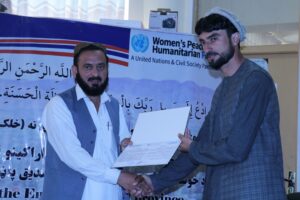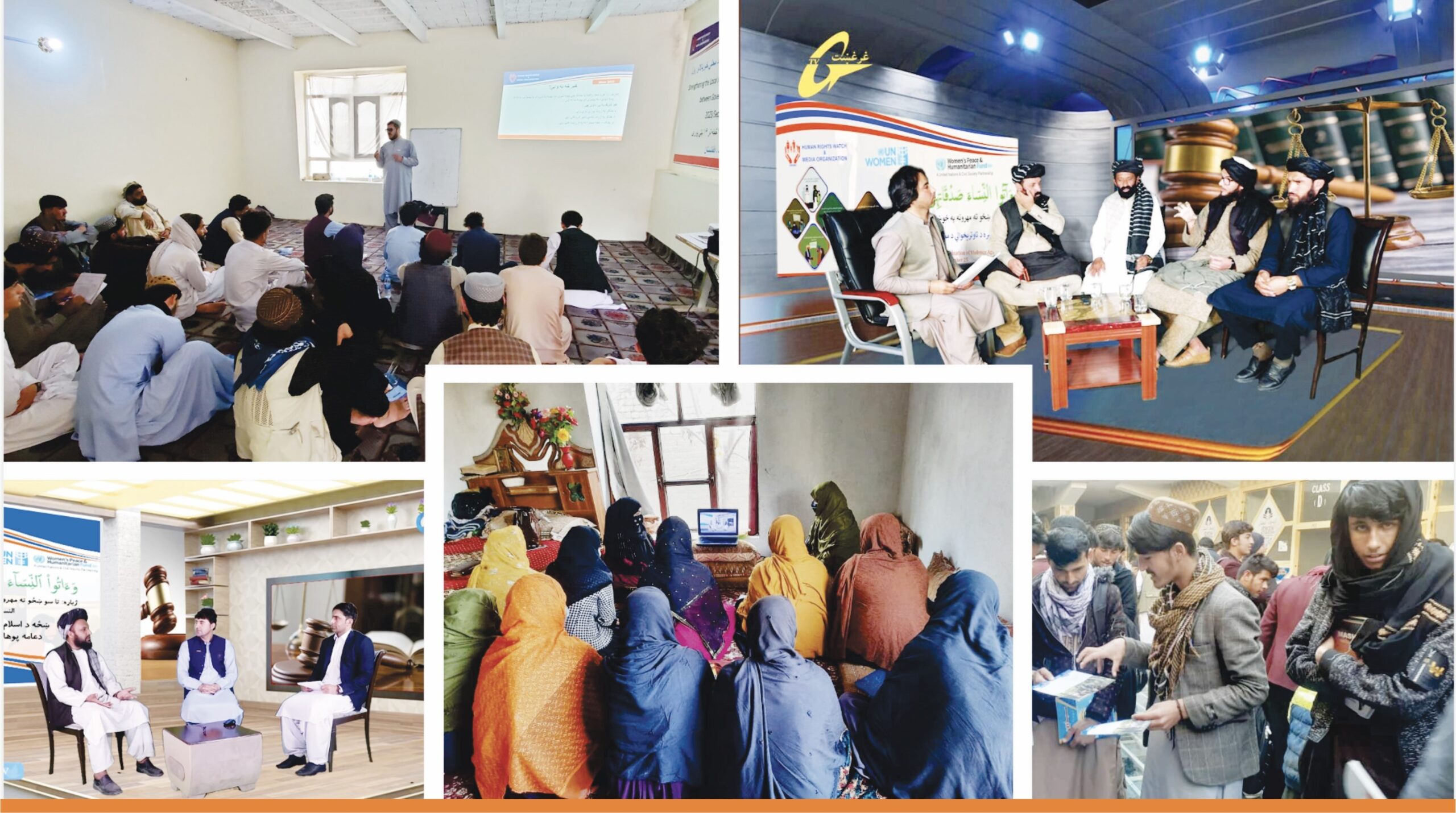This project, funded by the Women’s Peace and Humanitarian Fund (WPHF) in Khost province, was carried out in collaboration with UN Women. Its aim was to challenge and change the prevailing attitudes within tribes, society, and individuals that normalize violence against women.
HRWMO trained 9,890 male and female community activists, internally displaced persons (IDPs), youth, women and girls, religious scholars, and community leaders by hosting 72 capacity-building workshops, 12 community awareness workshops, 15 civic discussion sessions, 60 community activist network meetings, and various media interventions. Over the course of 15 months, HRWMO developed 12 male and female community activists who received specialized training on the needs and wishes of survivors of gender-based violence (GBV), mental and psychological support, as well as enhancing informal justice mechanisms to protect the rights of GBV survivors. HRWMO also provided counseling services for GBV survivors in the community through female Self-Help Group (SHG) members.
HRWMO established SHG networks for both men and women. Participants received training on the protection of women and girls, addressing the needs of GBV survivors, providing mental health and psychological counseling support, and offering legal information.
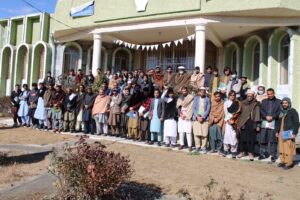
Community SHG members regularly receive applications from survivors of GBV, along with women and girls in need of psychological support and counseling services. These survivors are referred to female doctors who provide counseling free of charge. Additionally, female SHG members screen women, girls, and children for issues such as pregnancy complications, malnutrition, and experiences of GBV. They refer these individuals to nearby clinics, particularly family doctors, for appropriate treatment if necessary. Most women and girls who are survivors of GBV are effectively connected with female doctors offering them free counseling services.
Training women as community social and health helpers is a critical strategy for protecting women and girls. This initiative provides essential support services for survivors of gender-based violence and marginalized women who face barriers to accessing social and health services due to restrictive policies and the remoteness of their communities. Many families live far from health facilities and social welfare offices, making it especially challenging for women and specialists to reach these services. The 94 female SHG members will continue offering support to women and girls in their community.
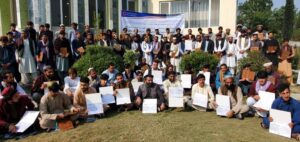
A vital component of the project involved training 131 male members of SHGs, including religious scholars, community leaders, youth, and local jirga members. This initiative significantly contributed to community efforts to reduce various forms of family violence against women and girls through mobilization efforts, using loudspeakers in mosques, and local jirgas. Throughout the project’s duration, community activists addressed several local conflicts, often emphasizing how girls were frequently victimized by decisions made by these local jirgas.
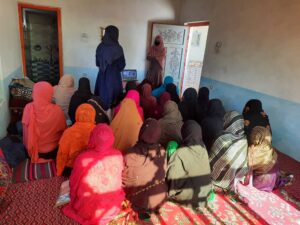
HRWMO engaged in discussions through various media outlets, including social media platforms, 24 advocacy billboards, 4,500 leaflets, and 36 radio discussions and 15 TV talk shows. These conversations focused on women’s rights, gender-based violence, various forms of family violence against women and girls, women’s right to education, and their social and economic participation.
Additionally, HRWMO developed and produced a 10-minute documentary on women’s rights, which was screened at each training event for participants.
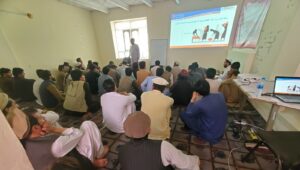
Moreover, HRWMO advocated for the rights of female journalists and women’s voices through local radio stations, especially when women’s voices were banned by the DFA. Fortunately, HRWMO reached 3.2 million listeners through TV and radio discussions broadcast on Zhman TV and Naz Radio stations. It also created an enabling environment for radio stations to address women’s programs on their channels, and currently, HRWMO is under the UN Women project promoting women’s programs.
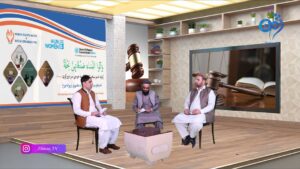
The project involved several implementation components, including training for 20 local journalists. HRWMO provided these journalists with skills in sensitive reporting and media advocacy. They learned how to report safely, protect their security while doing so, access information, and address issues related to social matters and gender-based violence (GBV) from an Islamic perspective.
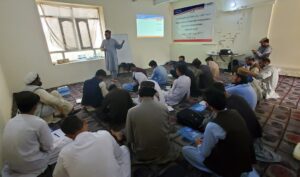
Related Documents
Success stories: Interviews with female entrepreneurs,
HRWMO TV talk shows on VAWA and Women’s rights
HRWMO radio panel discussion on VAWG, women’s rights, and child protection,
Related project videos.
Also, check out our social media activities.
For more information on this initiative, please get in touch with Wali A. Shirzad, Strategic Partnership Manager.
